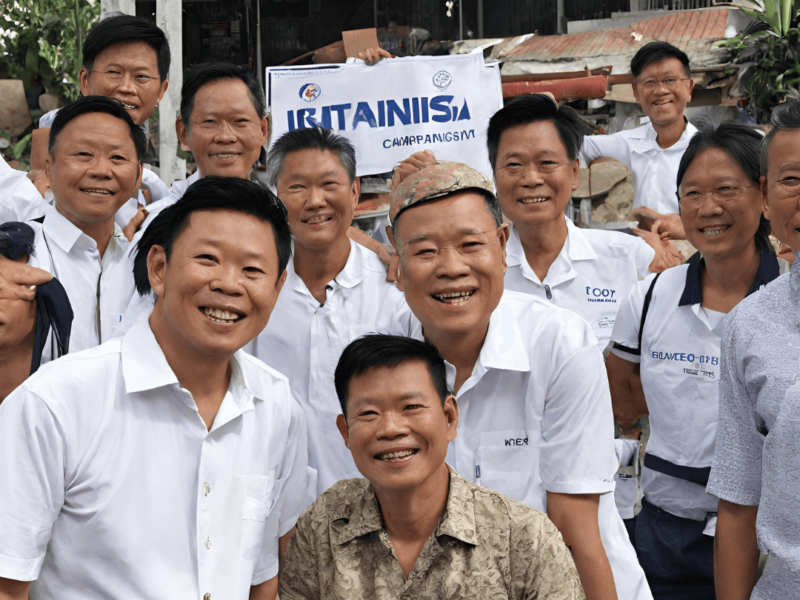The Crucial Role of Early Human Lung Immune Cell Development in Epithelial Cell Fate
Introduction
The human lung is a vital organ responsible for gas exchange and oxygenation of the body. The development and maintenance of a healthy lung require a complex interplay between various cell types and processes. One such crucial aspect is the early development and maturation of lung immune cells and their influence on epithelial cell fate. In this article, we will delve into the intricate relationship between lung-resident immune cells and epithelial cells, highlighting the significance of their interaction in maintaining lung health and function.
The Lung Microenvironment
Before we delve into the role of lung-resident immune cells, it is crucial to understand the unique microenvironment of the lung. The lung, with its vast surface area and constant exposure to the external environment, faces numerous challenges in maintaining homeostasis. The respiratory epithelium serves as a protective barrier, preventing the entry of pathogens and foreign particles. However, it also interfaces with the immune system to mount an appropriate response when necessary. This delicate balance requires the close coordination of immune cells and epithelial cells.
Early Development of Lung-Resident Immune Cells
During human fetal development, lung-resident immune cells begin to differentiate and populate the lung tissue. These immune cells include macrophages, dendritic cells, natural killer cells, and lymphocytes. The development of these immune cells occurs in distinct waves, with different populations arising at specific stages of lung development. This process is orchestrated by a combination of intrinsic and extrinsic factors, such as transcription factors and cytokines.
Crosstalk between Lung-Resident Immune Cells and Epithelial Cells
The interaction between lung-resident immune cells and epithelial cells is crucial for maintaining lung health and function. Lung-resident immune cells constantly survey the epithelial barrier, recognizing and responding to potential threats. This forms an intricate network of cell-cell communication, where immune cells ensure proper barrier function and epithelial cells signal the presence of pathogens or tissue damage.
One crucial aspect of this crosstalk is the role of immune cells in modulating epithelial cell fate. Epithelial cells are responsible for the regeneration and repair of the lung tissue. Upon injury, these cells undergo a process called epithelial-mesenchymal transition (EMT) to facilitate migration and proliferation. Lung-resident immune cells play a significant role in promoting or inhibiting this process, guiding the regeneration of damaged lung tissue.
Promoting Epithelial Regeneration
Macrophages, a type of immune cell, have been shown to have a positive impact on epithelial cell regeneration. These cells release factors such as transforming growth factor-beta (TGF-beta) and hepatocyte growth factor (HGF), which promote the proliferation and migration of epithelial cells. Additionally, macrophages phagocytose apoptotic cells and debris, further supporting the regeneration process.
Another set of immune cells, known as dendritic cells, contribute to epithelial regeneration through their ability to present antigens and initiate immune responses. Dendritic cells play a crucial role in orchestrating the immune response, ensuring the clearance of pathogens and promoting tissue repair.
Inhibiting Epithelial Regeneration
While some immune cells promote epithelial regeneration, others have been shown to inhibit this process. For example, regulatory T cells (Tregs), a subset of lymphocytes, have immune-suppressive functions that limit tissue damage and inflammation. However, excessive Treg activity can hinder proper epithelial regeneration, leading to fibrosis and impaired lung function.
Furthermore, aberrant activation of immune cells, such as neutrophils and eosinophils, can contribute to chronic lung diseases, including asthma and chronic obstructive pulmonary disease (COPD). These immune cells release various inflammatory mediators that can damage epithelial cells and impair their regenerative capabilities.
Conclusion
The early development of lung-resident immune cells plays a crucial role in determining the fate of epithelial cells. Their interaction is vital for maintaining lung health, as immune cells constantly survey the epithelial barrier and respond to challenges. The crosstalk between immune cells and epithelial cells promotes proper epithelial regeneration while ensuring an appropriate immune response. Understanding the intricate relationship between these cell types is vital for developing therapeutic strategies to combat lung diseases and promote lung health. Further research in this field holds great promise for improving our understanding of lung development and disease progression.
Revolutionizing Lung Cancer Care: Groundbreaking Tools and Techniques from Genes to Prognosis
Blinding Immune Cells: Mice with Humanized Immune Systems Revolutionize Cancer Therapeutic Approach

